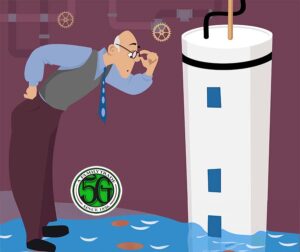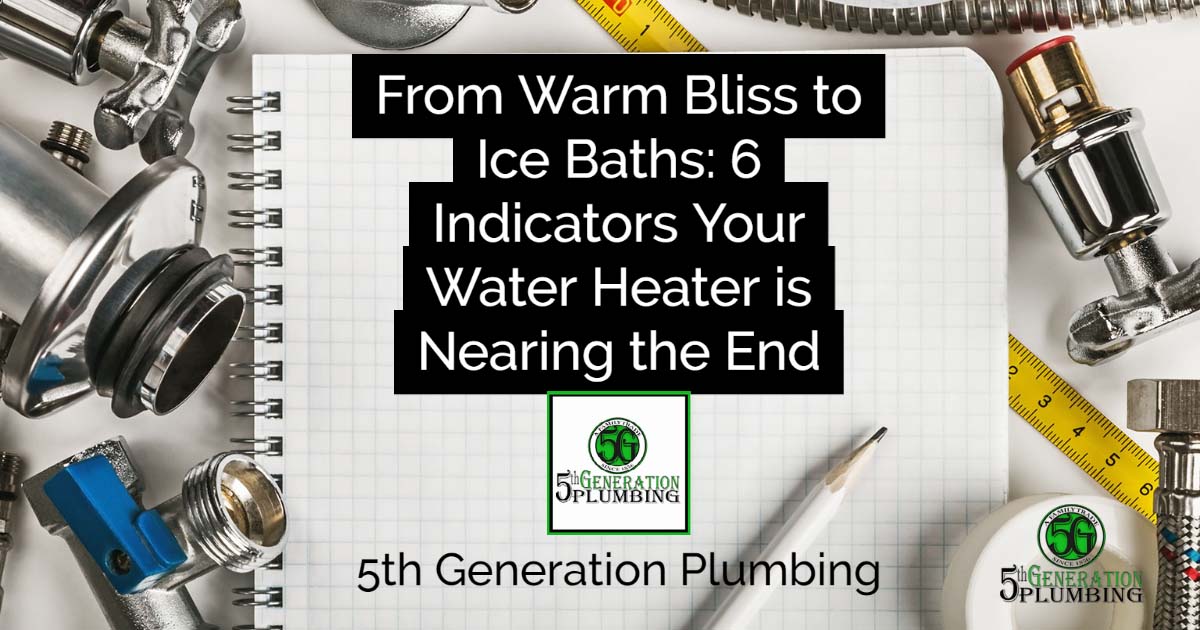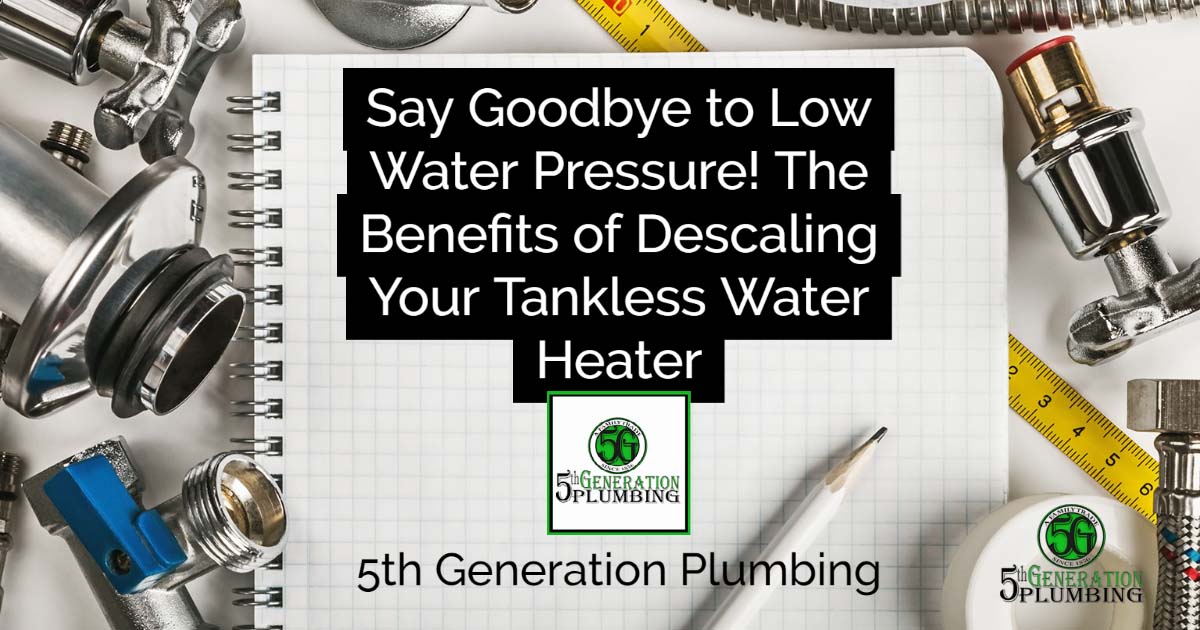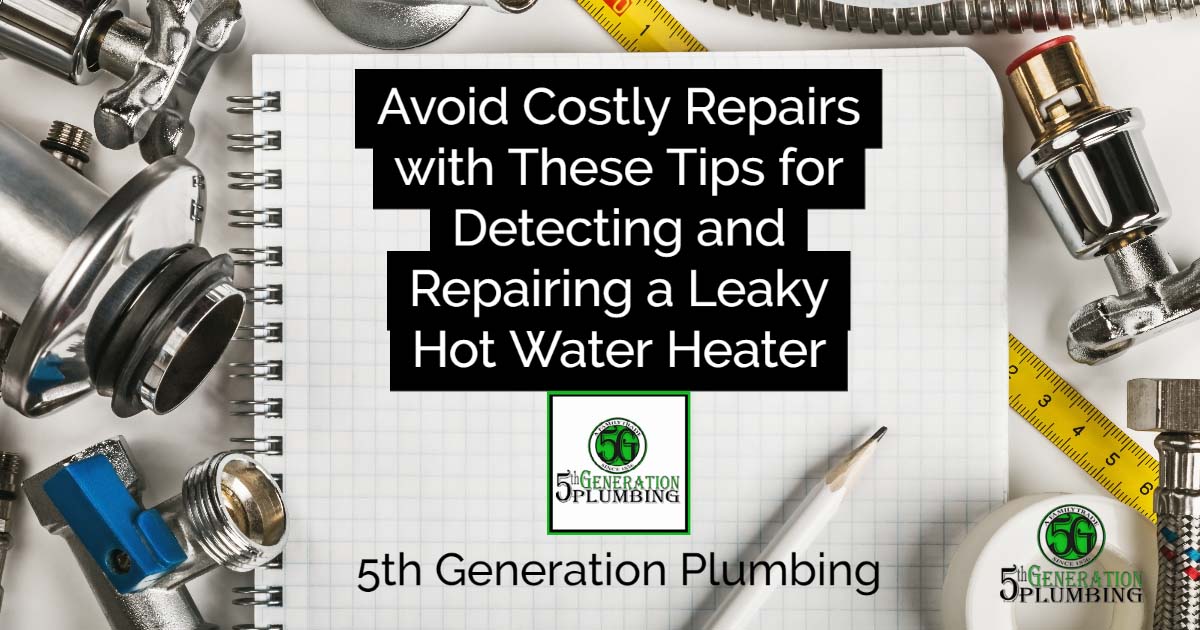From Warm Bliss to Ice Baths: 6 Indicators Your Water Heater is Nearing the End
Picture this: it’s a chilly winter morning, and all you want is a hot shower to embrace your senses with warmth. But just as you step into the bathroom, you’re greeted by an icy blast of water that could rival Antarctica itself. Your once reliable water heater has bid its adieu, leaving you longing for those blissful moments of steaming relaxation. If this scenario sounds all too familiar, fear not! In this blog post, we’ll reveal six telltale signs that your water heater is nearing its end so that you can take action before those cozy showers turn into bone-chilling ice baths. Stay tuned as we dive deep into the world of failing water heaters and equip you with the knowledge to conquer any plumbing challenges ahead!
Overview of Water Heater Types and Maintenance
Water heaters are an essential part of any home, providing hot water for bathing, cooking, and cleaning. There are a number of different types of water heaters available on the market, each with its own advantages and disadvantages. In this section, we’ll take a look at the different types of water heaters and some tips on how to maintain them.
Traditional storage water heaters are the most common type of water heater in use today. They consist of a tank that stores hot water, typically between 30 and 50 gallons. The hot water is heated by either a gas burner or an electric element. Storage water heaters are generally very reliable, but they can be expensive to operate due to the high cost of electricity or natural gas.
Tankless or on-demand water heaters are another option that is becoming increasingly popular. These units do not store hot water in a tank, but instead heat it on demand as needed. This can save money on operating costs since there is no need to keep a tank of hot water heated all the time. Tankless units can be powered by either gas or electricity, although gas-fired models tend to be more efficient.
Solar-powered water heaters are a great option for those who want to save money on their energy bills and help the environment. Solar-powered units use the sun’s energy to produce hot water, so they are completely emissions-free.

from warm bliss to ice baths: 6 indicators your water heater is nearing the end
Signs It’s Time to Replace Your Water Heater
1. Your Water Heater is More Than 10 Years Old
If your water heater was installed more than 10 years ago, it’s time to start thinking about replacing it. While water heaters are built to last, they don’t last forever. An old water heater is more likely to break down and will be less energy-efficient than a new one, costing you more money on your energy bills.
2. Your Water Heater is Making Strange Noises
If your water heater is making strange noises, it could be a sign that it’s starting to fail. Common signs include banging, popping, or gurgling sounds. These noises are usually caused by sediment build-up in the tank and can be a sign that your water heater’s days are numbered.
3. You’re Not Getting Enough Hot Water
If you’re not getting enough hot water from your water heater, it could mean that the heating element is failing. This is most common in electric water heaters, but can also happen in gas models. Replacing the heating element is usually not worth the cost, so if this happens, it’s time to replace the entire water heater.
4. Your Water Heater is Leaking
A leaking water heater is a serious problem and means that you need to replace your water heater as soon as possible. Even a small leak can quickly turn into a much bigger problem, so don’t delay if you see any signs of a leak.
Unpleasant Odor
If your water heater is nearing its end, you may notice an unpleasant odor coming from it. This is usually due to a build-up of sediment and debris in the bottom of the tank. Over time, this can cause the water to become stagnant and create an environment where bacteria can thrive. When this happens, you may notice a foul odor coming from your taps or shower head. If you notice an unpleasant odor coming from your water heater, it’s important to have it inspected by a professional to determine if it needs to be replaced.
Leaking Water or Sediment Build Up
If you’ve ever turned on your faucet to a trickle of water or had sediment build up in your shower, chances are your water heater is nearing the end. These are two of the most common indicators that your water heater is on its last legs and needs to be replaced.
Other signs that your water heater is failing include:
- Rusty water: This is usually a sign of corrosion in the tank and can be an indication that it’s time for a replacement.
- No hot water: If your water heater isn’t providing any hot water, it’s likely because the heating element has failed. This usually calls for a new water heater.
- Leaks: A small drip from the pressure relief valve or from one of the fittings is usually not cause for alarm, but if you have a significant leak, it’s time to replace your water heater.
If you’re experiencing any of these problems with your water heater, it’s best to call a plumber to discuss replacement options.
Rusty or Discolored Water from Faucets or Showerheads
If you’ve noticed that the water coming out of your faucets or showerheads has a rusty or discolored appearance, it’s likely that your water heater is nearing the end. This is because as water heaters age, they can develop corrosion and mineral deposits that can cause the water to take on this unwanted color. If you notice this problem, it’s important to have your water heater inspected by a professional to determine if it needs to be replaced.
Not Enough Hot Water for Multiple Sources
If you find that there’s not enough hot water for multiple sources when you turn on the shower and the washing machine at the same time, it could be a sign that your water heater is nearing the end. This is because the water heater has to work harder to heat up the water, which can lead to decreased hot water levels. If you notice this happening regularly, it’s best to call a plumber to take a look and see if your water heater needs to be replaced.
Age of the Heating Unit
The average lifespan of a water heater is 8 to 12 years. If your unit is approaching or past this age, it may be time to start thinking about replacement. However, age isn’t the only factor that determines when a water heater needs to be replaced. Other indicators that your unit may be nearing the end include:
- Leaks: A small drip from the pressure relief valve or a slow trickle from the bottom of the tank are both indications that your tank is beginning to rust and corrode.
- Noises: Popping, banging, or gurgling sounds coming from your water heater can also signal impending failure. These noises are caused by sediment build-up on the bottom of the tank. As the sediment heats up, it begins to break down and harden, causing these strange noises.
- Decreased hot water output: If you notice that you’re not getting as much hot water as you used to, or it’s taking longer to heat up, this could be another sign that your water heater is past its prime.
Benefits of Installing a New Water Heater
If your home’s water heater is more than 10 years old, it might be time to start shopping for a replacement. A new water heater can provide numerous benefits for your home, including:
- More energy-efficient than older models: Newer water heaters are built to be much more energy-efficient than older models, helping you save money on your monthly utility bills.
- More reliable: With advances in technology, today’s water heaters are built to be much more reliable than older models. This means you can enjoy peace of mind knowing that your family will always have access to hot water.
- Longer lifespan: With proper maintenance, today’s water heaters can last up to 15 years or longer. This is a significant increase over the lifespan of older models, which typically only lasted around 10 years.
Installing a new water heater can provide numerous benefits for your home and family. If your current water heater is more than 10 years old, it might be time to start shopping for a replacement.
Steps to Take When Replacing Your Old Unit
- Schedule an inspection: The first step is to contact a professional to come and take a look at your water heater. They will be able to tell you if it’s time for a replacement.
- Consider your needs: When you’re getting a new water heater, you want to make sure that it meets your needs in terms of size and capacity. A bigger unit may cost more upfront, but it could save you money in the long run.
- Choose the right type of unit: There are several types of water heaters on the market, so do your research to figure out which one is best for your home. You may want to consider a tankless water heater if you want to save space and energy.
- Get it installed by a professional: Once you have your new water heater, be sure to have it installed by a qualified professional Like 5th Generation Plumbing with decades of experience. This will ensure that it operates properly and safely.
















